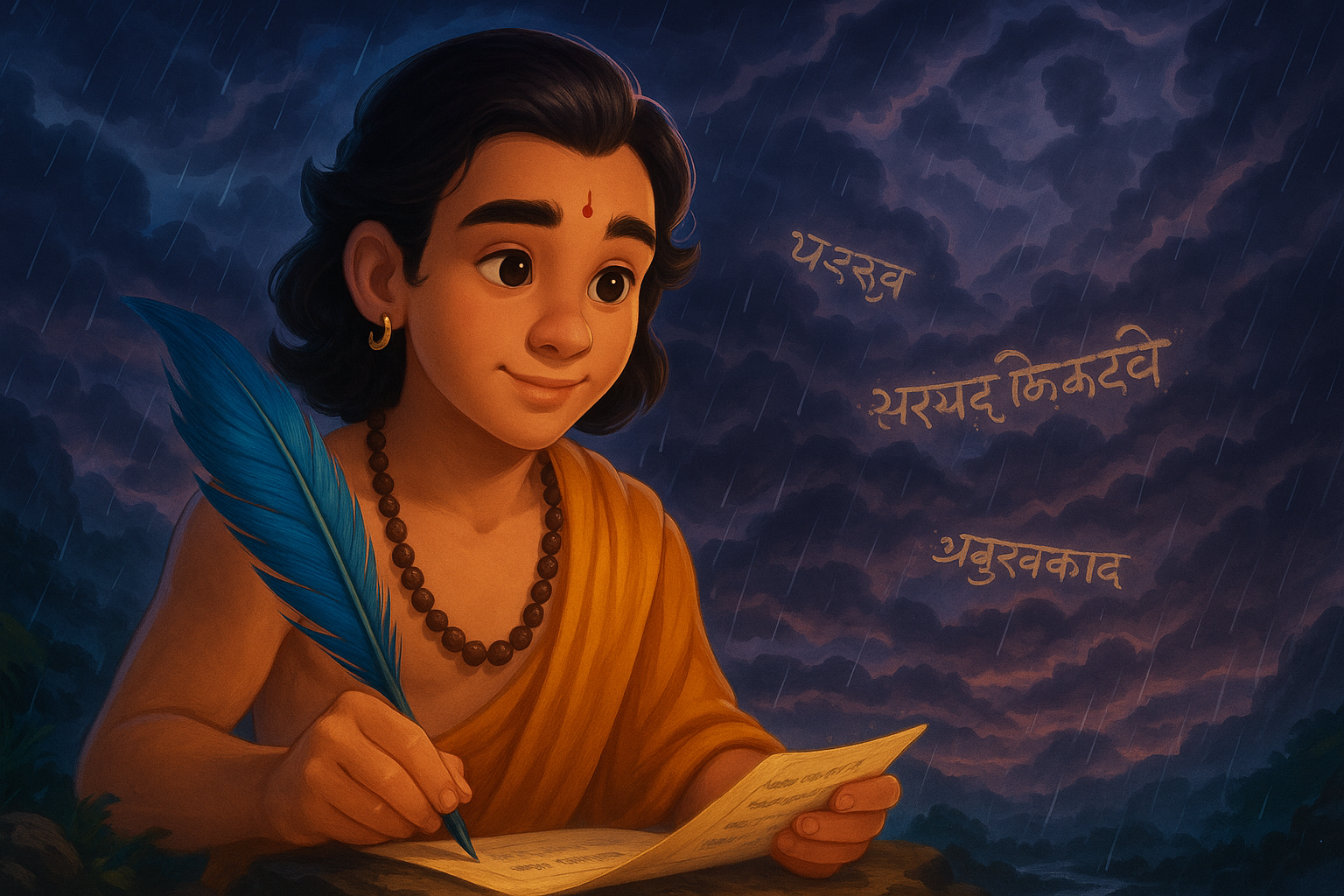No one knows exactly when he was born — some say the 1st century BCE, others the 4th or 5th century CE — but India remembers him not by date, but by destiny.
He emerged during the Gupta Age, an era of wisdom and aesthetic flowering, often called the Golden Age of India.
In that age of scholars and kings, a quiet man would rise — not through war or conquest, but through poetry. His name was Kalidasa, “the servant of Kali.”
“Words are born in silence — and Kalidasa listened so deeply, they became music.”
The Legend of His Awakening
Stories say Kalidasa was once a simple shepherd — uneducated, mocked, underestimated. He married a learned princess who insulted him for his ignorance. Humiliated, Kalidasa turned to Goddess Kali, praying for wisdom.
One night, he fell asleep before her temple — when he awoke, he was changed. His mind had opened to the rhythms of the universe. Knowledge was not learned — it flowed through him.
Was this myth or truth? No one knows. But what is certain is this:
When Kalidasa picked up the pen — Sanskrit became song.
The Voice of Ancient India
Kalidasa didn’t write — he painted with words. His poetry was mist and sunlight, longing and devotion. Every line carried nature as a living character:
Clouds traveled as messengers of love. Mountains held secrets of longing. Seasons breathed like living souls.
His three great plays —
Abhijnanasakuntalam (Shakuntala and the Ring of Memory), Vikramorvashiyam, and Malavikagnimitram — transformed Indian drama forever.
Poets across time would say:
“What Kalidasa wrote, the gods whispered.”
Meghaduta — The Cloud Messenger
His most loved work, Meghaduta, is not a poem — it is a sigh of love stretched across sky and earth.
An exiled lover sends a message through a passing cloud to his distant beloved in the Himalayas:
“Even the sky becomes a road when the heart knows where to go.”
This was Kalidasa — a man who could make a cloud weep.
Raghuvamsa & Kumārasambhava
He wrote of kings and gods with reverence, yet human tenderness was always his center.
Raghuvamsa told the story of King Raghu’s noble dynasty.
Kumārasambhava sang of Shiva and Parvati — a love story carved in cosmic fire and devotion.
Through mythology, he spoke of dharma, love, sacrifice, and purpose.
The Poet Beyond History
No one knows where Kalidasa died. No one knows where he is buried. And yet — he is everywhere.
He is in every temple chant, every lovers’ sigh, every poet’s dream.
“He left no palace behind — only poetry that became immortal.”
The Legacy
Kalidasa remains the greatest poet of Sanskrit literature.
The Shakespeare of India, they call him — but perhaps it is Shakespeare who is the Kalidasa of the West.
India did not just read Kalidasa. India felt him. For in his poetry, she recognized herself — proud, ancient, poetic, eternal.
“Where emotion becomes prayer and nature becomes witness — there lives Kalidasa.”
